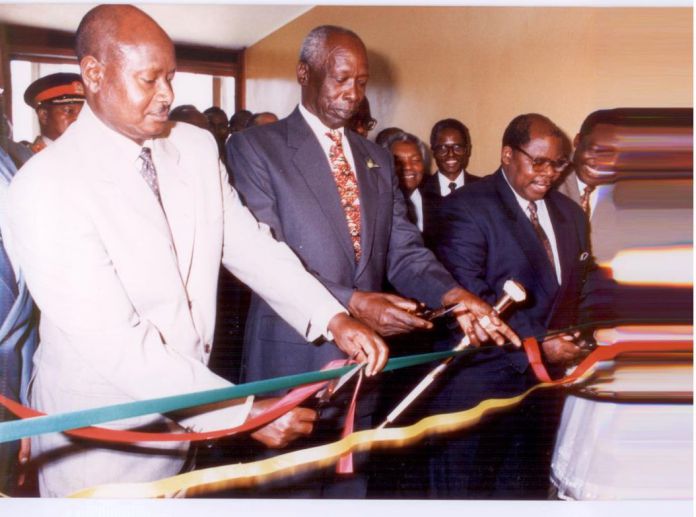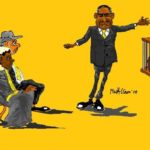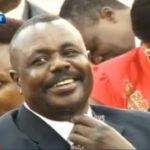Ever since Joel Kamadhi (not the NTV news anchor) joined our Malwa (local brew extracted from millet) Club about 30 days ago, every evening the group has been bustling and bubbling with life, with varying discussions about regional and local politics, economics, service delivery, the just-concluded American elections won by billionaire Republican Donald Trump and even the death of Fidel Castro, among several other topics.
Indeed, the Malwa ‘joint’ that was previously a lousy drinking place in the eastern Kampala suburb of Mutungo, has had its life rejuvenated by Kamadhi who claims he is a ‘retiring public servant with infinite connections to the corridors of power’.
Well versed with information on the socio-economic and political platforms around the globe, Kamadhi, who says he is about 72 years old, claims he is ‘a PanAfricanist and deeply patriotic Ugandan who has seen it all and done it all’.
According to Kamadhi, over his long career in the public domain he has worked in almost all the ministries and in the private sector, in the process ‘meeting, dining and wining with the ‘mighty’ in Uganda’. He also claims to have gone to some of the best schools in Uganda, where he interacted with the ‘brainy people who move things in Uganda’. His repertoire also includes having ‘friends’ in high offices who feed him with information ‘that can make the CIA envious’!
And, while talking about his ‘life’s journey’ the septuagenarian does not want to be interrupted by ‘young men’, a term he uses to refer to the rest of the club members, all of who are apparently over 40 years!
Born in Busoga in the 1940s, Kamadhi prides himself in having humbly served Uganda for 40 years and is so proud of having achieved ‘such a feat’ that he fervently only compares to the achievements registered by Ugandan President Yoweri Museveni, Zimbabwean President Robert Gabriel Mugabe and Jose Eduardo Dos Santos of Angola.
So, during yesterday’s ‘Malwa sitting’, Kamadhi was in his political element and among other issues, first ‘lectured’ us about the East African Community (EAC) and why it failed to achieve its set target of ‘political federation’ by 2013, the previously agreed upon date set by the ‘new EAC founding fathers’ – Yoweri Museveni of Uganda, Daniel Arap Moi of Kenya and Benjamin William Mkapa of Tanzania in 1993.
According to Kamadhi, jostling around ego, and the political beliefs and aspirations of the three founding leaders was responsible for the ‘collapse’ of the idea of a politically-federated East Africa. According to Kamadhi, at the time both Kenya and Uganda were single-party states led by the Kenya African National Union (KANU) and National Resistance Movement (NRM), respectively, while Tanzania practiced multipartyism under the Chama Cha Mapinduzi (CCM). Further, he said that while Mkapa was serving a mandatory constitutional two-term presidency ‘concretised by institutional legacy’, both Moi and Museveni “showed no inclination as to when and how they would leave power.”
He said the matter was complicated by a clause in the original treaty that implied that ‘the longest-serving President at the time of federation in 2013 would automatically become the first President of the EAC Political Federation’.
“This brought about a slow start; while Mkapa knew when he was set to leave government, his two other colleagues were cagey about the issue,” Kamadhi said, before delving into discussion on how Rwanda, Burundi and South Sudan joined the EAC and the subsequent implications of their joining the regional grouping.
“Young men, have you realized that of the current six EAC member countries, only Tanzania and Kenya have clearly-defined presidential transition plans?” Kamadhi asked before pausing for effect.
Once recomposed, Kamadhi said that while Rwanda President Paul Kagame had amended the country’s Constitution to enable him seek a third term, Burundi President Pierre Nkurunziza was also in the final stages of amending his country’s Constitution to ‘allow him rule for life’. The two maneuvers, Kamadhi said, coupled with the earlier one in Uganda in 2005, were a big blow to democracy in the EAC.
Then he took the group members through the politics of South Sudan, at one point saying its entry into the EAC was “‘premature’ because it did not meet even a tenth of the conditions necessary before becoming a member state.” And, without giving explanations, Kamadhi also had a few kind words for Tanzania, which he said, had deliberately slowed progress of the EAC.
But the political element in the sage was not done!
He then turned to Ugandan politics, telling the group members that the removal of term limits here in 2005 had had a spiraling influence in about half of the other EAC states, namely Rwanda and Burundi.
“Clearly, this is not the best export Uganda should be proud of,” Kamadhi said, adding however, that a few years ago President Museveni had considered stepping down from the presidency at the end of his then mandate.
According to Kamadhi, at the time Mr Museveni called a few of his confidants for a ‘candid’ discussion about the ‘presidential succession and transition’. Poignantly, Kamadhi said, Mr Museveni had four people in mind around who the deliberations would be centred. “These”, according to Kamadhi, “were Vice President Edward Kiwanuka Sekandi, former Prime Minister John Patrick Amama Mbabazi, current Chief of Defence Forces (CDF) General Edward Katumba Wamala and, the ‘surprise package’, Major General John Gregory Mugisha Muntu, the President of the opposition Forum for Democratic Change (FDC).”
Quite obviously Gen Muntu did not attend the said meeting but according to Kamadhi, “after scrutinizing all the pros and cons of the possible successors, Maj Gen Muntu seemed to sweep the succession debate but only on one condition, he had to apologise and reform.”
Kamadhi said the reasons the other three were rated lowly had ‘issues’ to do with age, trust, loyalty and the ‘politics of City Square’.
It was at this point that Kamadhi told the members about his ‘lowest point’ in the recent past, saying it was when ‘a friend with strong links to the ruling NRM party’ called him a ‘City Square Patriot’.
“Where were you when we went to the bush? We were away for five years and when we returned we found you at the City Square waiting to join us just like that! We can’t share the national cake with you equally,” Kamadhi quoted his ‘friend’ as saying, before bidding us ‘goodnight’ and promising to tell the group members why Rwenzururu ‘King’ Charles Wesley Mumbere was arrested ‘easily’ at the next ‘sitting’.
DISCLAIMER: This is a burlesque column that will be running every Friday.








